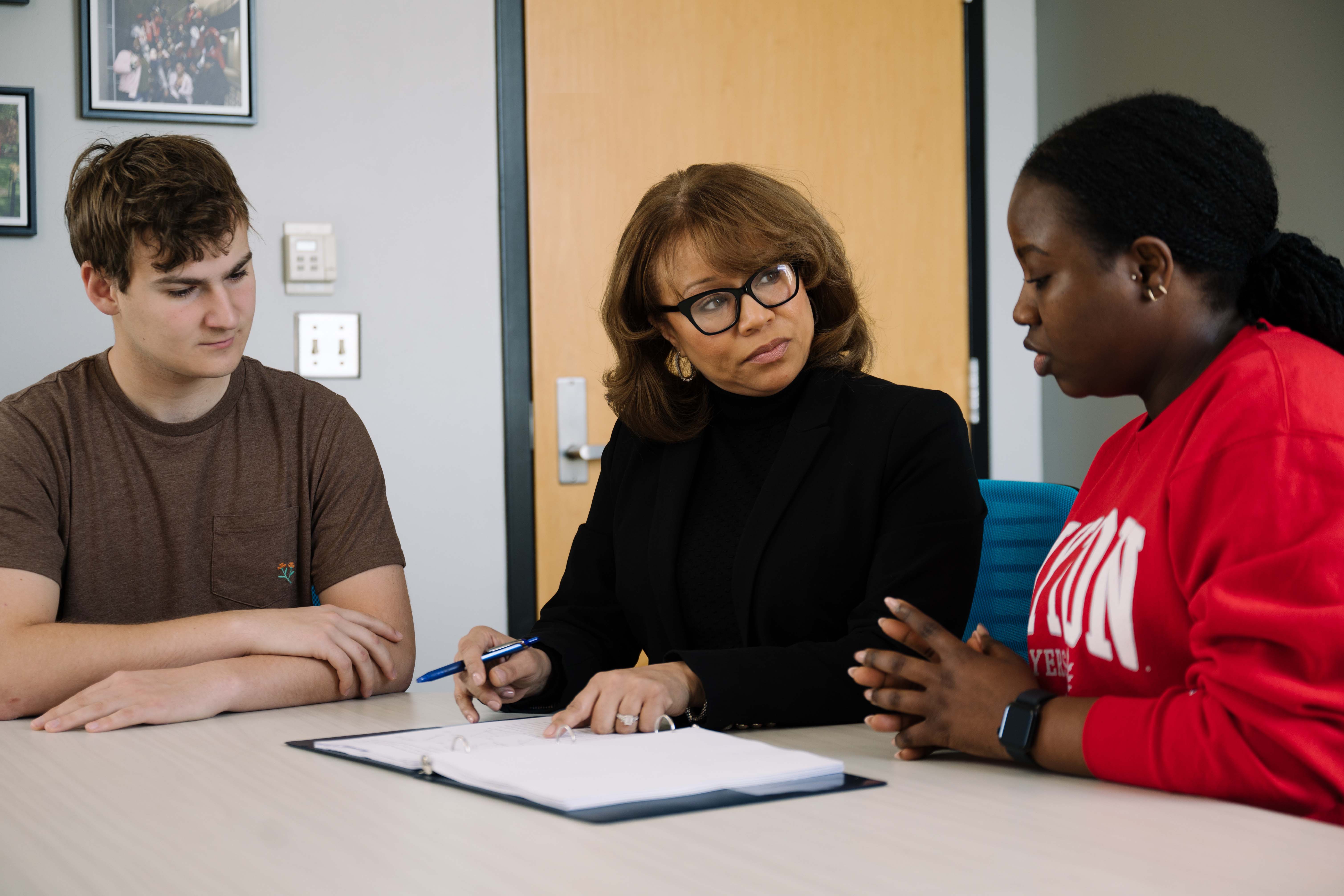Dayton Engineer

7 Questions with Dr. Sharon Bommer
We asked Dr. Sharon Bommer, associate professor in the Department of Engineering Management, Systems and Technology, about her background and research.
Describe your research area?
My research area centers on human performance and cognition. In my research lab, we delve into mental workload analysis using modeling and simulation tools to drive advancements in human cognition and productivity. My overarching goal is to expand the limits of human performance and well-being across diverse domains. I strive to push the boundaries of human understanding by innovatively investigating mental workload analysis while exploring new methodologies and technologies.
How did your interest in human performance and cognition start?
My interest in human performance and cognition began when I pursued my doctoral degree in industrial engineering. During that time, I needed to choose a research focus. Upon reviewing the research areas of various professors at my university, I came across the work of a female professor specializing in human factors, which intrigued me. Fortunately, she had funding available to support a graduate student, and reaching out to her proved to be a perfect match for my interests.
Why did you choose a career in engineering?
In grade school, I excelled in mathematics and science, sparking my initial ambition to become a high school math teacher. However, my older sibling, whom I deeply admired, had a strong influence on me. She encouraged me to pursue engineering, and her classmates, who were female engineers, further fueled my interest in the field. Consequently, I chose to major in mechanical engineering. Despite this decision, my passion for teaching never waned.
After working in the automotive manufacturing industry for over 15 years, I decided to pursue a Ph.D. and return to my original aspiration of teaching. Now, I have the opportunity to engage with bright minds, utilizing my engineering expertise to teach and inspire others in the field.
Can you talk a bit about some of the research projects you are currently working on?
In my lab, we are currently working on investigating the impact of color within a simulated multitasking environment using the U.S. Army Aeromedical Research Laboratory’s Multi-Attribute Task Battery (USAARL MATB) simulation software. This study aims to understand how color influences mental workload, with the goal of designing human-machine interfaces that minimize distractions and enhance user experience, ultimately improving efficiency and productivity.
Also, we are beginning work employing predictive analytics to anticipate the learning needs of airmen, providing proactive support and guidance throughout their training journeys. This research will analyze learning and performance outcomes, predicting future performance trends and optimizing learning trajectories. This work integrates modern technologies, such as artificial intelligence (AI) and virtual reality (VR), with the goal of improving airmen's training periods. Overall, this research seeks to enhance training effectiveness and efficiency for airmen through the integration of cutting-edge technologies and methodologies.
Along with your master’s degree in industrial engineering, you have an MBA. What skills did you learn in your MBA that have helped you in your career as a researcher?
Having both a master's degree in industrial engineering and an MBA has provided me with a diverse skill set that significantly benefits my career as a researcher. My MBA education equipped me to better contextualize my research within the more significant economic and industry landscapes, enabling me to identify relevant trends and potential opportunities for innovation.
My MBA program emphasized leadership and communication skills, essential for collaborating with interdisciplinary teams, presenting research findings and effectively communicating complex ideas to diverse stakeholders.
Overall, the combination of my industry experience, industrial engineering background and MBA education has enhanced my analytical, managerial and communication capabilities, empowering me as a researcher and enabling me to contribute meaningfully to both academia and industry.
You’ve also worked in industry. How has your work in the industry fueled your research?
My automotive manufacturing industry experience predominantly addressed physical ergonomic aspects of work design. However, upon delving into my doctoral research on cognitive ergonomics, I noticed a significant gap in the field. While physical ergonomics received ample attention, cognitive assessments were largely overlooked. This realization sparked my interest in researching human performance within industrial systems by incorporating cognitive ergonomics into manufacturing work design.
What are some of the future opportunities your research can provide to improve manufacturing?
One facet of my research involves assessing cognitive system models tailored specifically for manufacturing operations. This aims to facilitate the design of more efficient systems that seamlessly integrate AI, VR and human-machine teaming. I aim to focus on optimizing manufacturing work design to ensure that modern technologies augment human performance to its fullest potential.
